BloodDrive
GET YOUR BLOOD TESTED BEFORE YOU TAKE VITAMINS!
In 2018 the UK population spent £442 million on vitamins – did they know if they really needed them? According to Mintel research vitamin D overtook the previous best seller vitamin C.
.
According to the NHS report if the average Caucasian exposes themselves to 12 minutes of full/partial sunshine every day on average this would be sufficient to meet our needs. Vitamin D is the only nutrient we produce from sunlight.
But if we eat salmon or tuna, eggs, mushrooms and shrimp, all of which contain vitamin D, we then have no need to take the supplement.
Here are some initial thoughts about blood. GO!
Here are some facts and statistics about blood. GO!
If you’re not feeling great should you take multivitamins? GO!
Our blood changes and needs checking. GO!
See how important blood chemistry is. GO!
Be amazed at the size of the nutrition market. GO!
See whether we actually need supplements. GO!
See how blood is very important to your body. GO!
Your blood needs cleaning like oil in an engine. GO!
See the best foods for cleaning your blood. GO!
If you’re a visitor to our site you can join and download information, assess your own health and create your own action plans, and even contribute to our site. GO!
See what you can do next.. GO!
We have some additional information on this subject. GO!
Some Initial Thoughts

Do we need vitamins?
Furthermore when you’re taking vitamins do you ever look on the label and ask: how are these made, which country do they come from, are they all natural ingredients, and if so where is the list, are they organic or chemically produced?
Ultimately do I know if I need them, have I had a look at my blood composition to find out? If these points leave you thinking Ummh! don’t buy any more until you have looked at what vitamins you’re lacking. Check your diet and food intake and secondly if you feel a bit run down take a blood test and see what might be missing.
Some surgeries do still offer a well person blood test to see how things are with your liver, kidneys, thyroid, cholesterol, sugar levels and prostate. Blood tests give a good indication of health and provide your doctor with certain signs that indicate something might be amiss or not.
Taking a vitamin blood test, a simple finger prick can help you find out more. These tests cover a range of blood functions that will enable you to Drive your Health more accurately.
Facts About Blood
have taken supplements in last 12 months (Independent)
take multi-vitamins every day (NHS)
in the UK will have diabetes by 2025 (Diabetes UK)
of blood’s volume is plasma
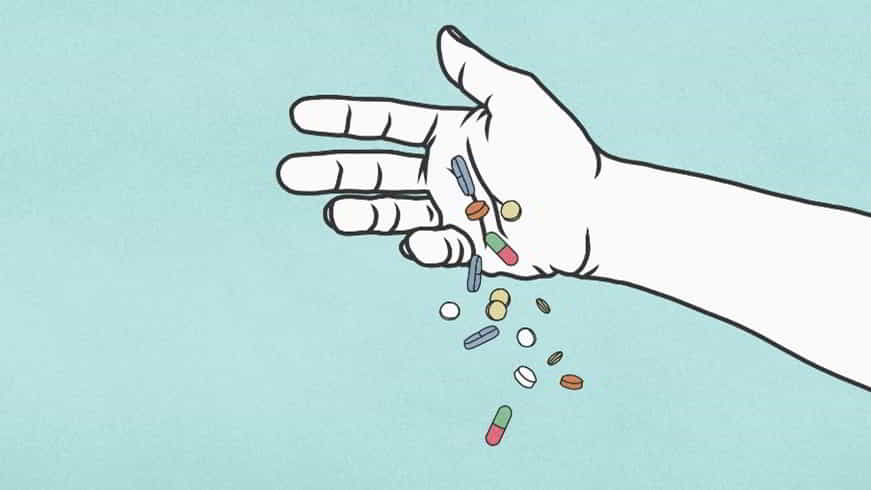
I feel under the weather. Take multivitamins? That's not the answer.
How many of us have rushed down the famous shop who sell discounted health products, buy one get one free? We chat at work or on the train and or we read a magazine that says: are you feeling a bit sluggish in the morning or lethargic in the early afternoon? Do your bones ache or crack when you get up or down? Well here’s the answer – vitamin X,Y,Z.
We rush down to the shop and buy several things and start taking them for a week or two and then we either see no change or psychologically think they are doing some good, BUT it never lasts.
We take tablets randomly not really knowing whether we are deficient in that mineral or vitamin at all, which is strange. We could be gobbling down vitamin D tablets because a friend at work swears by them when in actual fact we could be lacking in B12.
Most of us know that if we eat a really healthy diet and make it varied each week and balanced that we should not need supplements. They do recommend for certain stages in our lives we need extra – eg in pregnancy or old age, but health professionals say in those circumstances you are better eating more of the natural product that produces the vitamin than taking a supplement where you have no idea where it came from, what’s in it or what natural organic ingredients went into it.
Or is there another reason? We all seem to run-around today and life is very fast paced and our diets are not always balanced or varied for a variety of reasons. In this case it’s easier to pop a pill than start having to plan menus and food shops. If that is the case make sure it’s organic and you can be sure where it came from and the ingredients are truly natural. But before we do that lets find out if we are deficient in the vitamin before spending hundreds on products we don’t need.
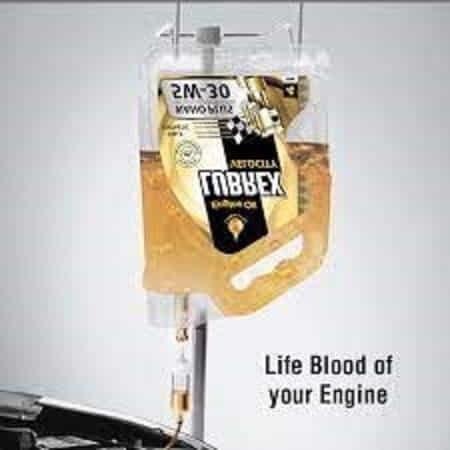
Our blood is constantly changing and needs regular checks like oil in an engine...
…and adapting to different environments, foods, drinks, work, stress levels, family etc. Blood carries chemicals, food, hydration, medicine, relaxants everything the body needs. Often the first thing a doctor will do is take a blood test to see if there is any imbalance.
Pregnancy or menopause, working too hard, over-exercising, sleep deprivation (see SleepDrive), oxygen levels, smog in a city all impact on chemicals pushed into your blood. The temptation is to rush out and buy some multivitamins.
Having a test to check the condition of your blood is a smart thing to do.
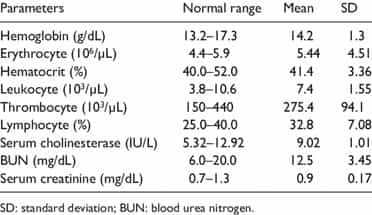
How important is it to have the right blood chemistry
Blood chemistry tests give important information about how well a person's kidneys, liver, and other organs are working. An abnormal amount of a substance in the blood can be a sign of disease or side effect of treatment.
What can blood chemistry see?
The following are some common blood chemistry tests you may have. An electrolyte panel measures sodium, potassium, chloride, magnesium, phosphate and bicarbonate. Kidney function tests (also called a renal panel) measure blood urea nitrogen (BUN) and creatinine. Diabetes, HIV, anemia, cancer,coronary heart disease.

The nutrition market is huge
Smart advertising and promotions suggest that taking multivitamins will make you feel much better.
In fact the global dietary supplements market was valued at USD 132.8 billion in 2016 and is expected to reach USD 220.3 billion in 2022 and is anticipated to grow at a CAGR of 8.8% between 2017 and 2022.
The value of the health and wellness market in the UK increased over the period observed from over 22.6 billion euro in 2013 to over 26 billion euro in 2018.
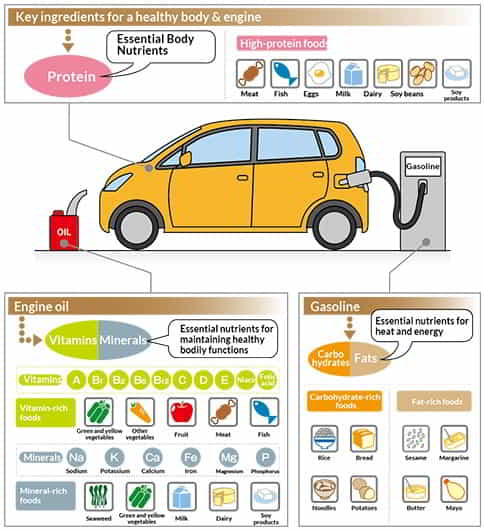
DIET IS KEY- Do we need health supplements?
Most health professionals will say that you don’t need to take supplements. If you eat a normal balanced diet and exercise regular your body should not require anything extra. I guess this should be true but with today’s busy lifestyles, parents raising kids and holding down full time jobs and taking care of a house etc getting the right balance of food intake to ensure we get the right amount of vitamin and minerals can be very hard to do. I don’t think many people are measuring their weekly dosage of vitamin C or D and whether the amount is enough or not.
We think it is fair to say everyone is different with different lifestyles. Some people have very stressed jobs or maybe are pregnant or recovering from an illness, therefore a quick blood test can set all that straight without guessing.
Lifestyle plays a very important part in our blood composition and the food we require is needed in different quantities. Stress has a major impact on our blood and body and knowing how to handle it is important.
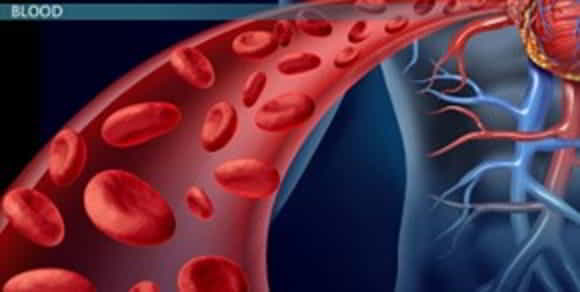
Blood is one of the most important things in your body
Blood is needed to keep us alive. It brings oxygen and nutrients to all the parts of the body so they can keep working. Blood carries carbon dioxide and other waste materials to the lungs, kidneys, and digestive system to be removed from the body. Blood also fights infections, and carries hormones around the body.
The main function of red blood cells is to carry oxygen from the lungs to the body tissues. And to carry carbon dioxide as a waste product away from the tissues and back to the lungs. Haemoglobin is an important protein in red blood cells that carries oxygen from the lungs to all parts of our body.
The blood serves three main functions:
Transport.
The blood transports gases like oxygen and carbon dioxide to and from the lungs and the rest of the body. The blood also moves nutrients from the digestive tract to the rest of the body, and transports waste products, hormones, and other cells.
Protection.
The blood contains white blood cells that destroy invading microorganisms, as well as platelet factors to clot the blood and minimize blood loss from an injury.
Regulation.
The blood helps to regulate your body’s pH, water balance, and temperature.
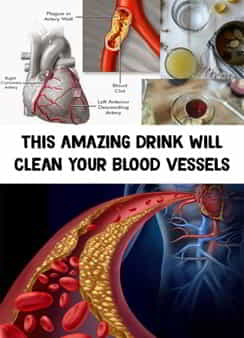
Does my blood need cleaning like the oil in an engine?
Technically no, it does not need changing but you can clean the blood and keep it healthy with eating healthy foods. Here is how you can keep it clean.
Your blood has a lot of important responsibilities, so it’s no wonder that people are looking for ways to keep their blood free of wastes and toxins.
Fortunately, your body already has a system to take care of the detox process and remove waste from the blood, namely the liver and the kidneys.
Liver. The liver is found in the upper right part of the abdomen. It helps convert food into energy. It also converts toxins, like alcohol, harmful metals, and medications, into harmless substances and ensures they are removed from the body.
Kidneys. The kidneys are two bean-shaped organs responsible for filtering the blood and removing waste.
Your body’s natural detox process also involves your intestines, skin, spleen, and lymphatic system.
You’ll see a lot of unfounded claims about detox supplements that can supposedly cleanse and purify the blood. While the ingredients in these supplements might help the blood indirectly by supporting kidney and liver function, there’s no evidence to show that they have a direct impact on removing waste and toxins from the blood.
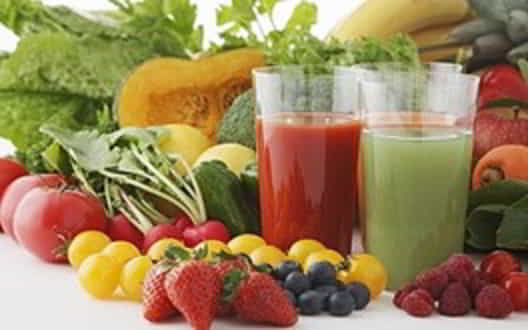
Keeping blood clean and healthy, blood cleaning foods
Best foods for a natural “detox”
There’s no single miracle food that will help your organs detox your blood. An overall healthy diet that includes plenty of fruits and vegetables is a great start.
The following foods in particular have been shown to positively affect the liver and kidney’s ability to cleanse and filter out waste and toxins from the blood:
Water
By far the best way to boost your kidneys’ performance is to drink enough water. Your kidneys depend on water to help them eliminate waste from the body. Water also helps keep your blood vessels open so that blood can move freely. Severe dehydration can lead to kidney damage.
Your urine should be light yellow or colorless throughout the day. According to the National Kidney Association, you should be producing about 6 cups of urine each day.
An adequate water intake will be different for everyone. A general rule is eight glasses of water per day, but you may need more if you engage in hard exercise or you weigh more. Men generally need more water than women.
Cruciferous vegetables (broccoli, cabbage, cauliflower, Brussels sprouts)
Cruciferous vegetables are often recommended for people with kidney disease. They’re high in antioxidants and extremely nutritious. They have been shown to reduce the risk of many types of cancer, including kidney cancer. Plus, they’re incredibly versatile. You can eat them raw, steamed, baked, grilled, or as part of a soup or casserole.
Blueberries
Blueberries are incredibly high in antioxidants, which can protect the liver from damage. Animal studies have found that whole blueberries can help keep the liver healthy.
You can snack on blueberries fresh or frozen, or mix them into yogurt, oatmeal, or a smoothie.
Cranberries
Cranberries are often touted for their urinary tract benefits. They have been shown to prevent bacteria from attaching to the urinary tract, which in turn keeps your kidneys free from infection.
To access the benefits of this fruit, you can simply add a handful of fresh cranberries to oatmeal, smoothies, or even salads.
Coffee
Drinking coffee may have protective effects on the liver. Studies Source show that drinking coffee lowers the risk of cirrhosis in people with chronic liver disease and may also the risk of developing liver cancer.
Coffee is with a lower risk of death in people with chronic liver disease and an improved response to antiviral treatment in people with hepatitis C. The benefits may be due to coffee’s ability to prevent the accumulation of fat and collagen in the liver.
Garlic
Garlic adds a wonderful flavor to any dish, whether raw or in powdered form. It has anti-inflammatory properties and can help lower your cholesterol and blood pressure. High blood pressure can harm the blood vessels in the kidney, so it’s a good idea to keep it in check.
Grapefruit
Grapefruit is high in antioxidants and may help control inflammation in the body. Most studies looking at the effect of grapefruit’s components have been conducted in animals, but the results are promising.
These have found that antioxidants contained in grapefruit can help protect the liver from injury and the harmful effects of alcohol.
Apples
Apples contain a high amount of a soluble fiber known as pectin. Soluble fiber helps regulate your blood sugar levels. Since high blood sugar can damage your kidneys, anything that helps keep it in check will have an indirect, positive effect on kidney health. Apples make a great snack, especially with a bit of peanut butter.
Fish
Certain types of fish, like salmon, tuna, or sardines, are high in omega-3 fatty acids. Omega-3 fatty acids have been shown to decrease blood triglyceride levels and lower blood pressure, both of which can help out your liver and kidneys.
Keep in mind that fish are high in protein. If you already have kidney disease, you should limit the amount of high-protein foods you eat. Eating too much protein may make your kidneys work harder.
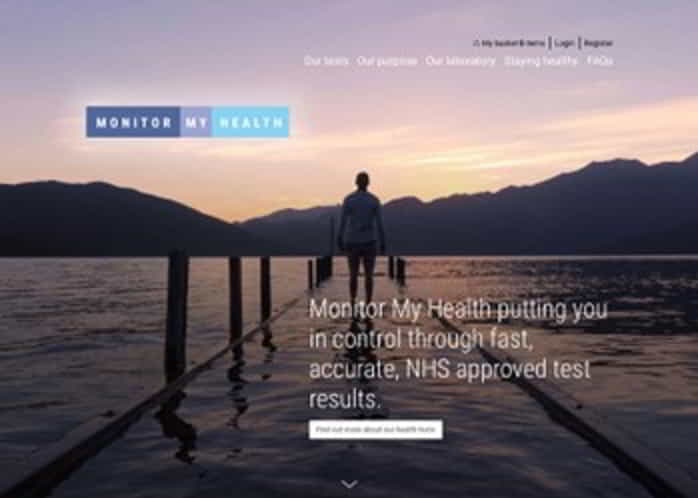
What should I do about checking my blood
Firstly, if you are feeling under the weather or feeling out of sorts or just don’t feel right, don’t pass it off. Call you doctor and ask for a blood test. Explain how you feel and could you get an all-round check for my; cholesterol, blood sugar, thyroid, prostate, liver, kidney, vitamins deficiency etc.
It costs the doctor nothing to do the test and it can uncover any manner of issues Or NOT and also may identify more serious early symptoms that are hanging around.
Alternatively, you can look online for a blood test kit company and pay for a test done at home via the post.
We have found a company called Forthwith life who supply blood testing facilities at home. Why not check it out and get yourself an accurate picture of your blood quality before you dive in and buy supplements.
For visitors
Why don't you join us?
You can register to join us as a member, when you’ll be able to download our stuff and comment, or as a YouDriver when you’ll also be able to check your health and set up your own action plans to make some improvements. If you’ve already registered, sign in below. Or let us know what you think.
MyPlate Nutrition Guide
MyPlate Nutrition Guide
This is a 5 minute US food guide shows a way of representing what foods are good for you.


More information
Interpreting Your Blood Work
How to Read It and Natural Ways to Improve Your Results
Your doctor has ordered blood tests, but do you know how to read the results? At some point in your life, you will probably either want or need to get a blood test, but unless you ask your healthcare professional, you may might know what the results really mean for your health.
Go to Amazon
How Blood Works
(LITERACY LAND) Paperback
Enthuses all readers with attention-grabbing titles, engaging humour and inventive topics to inspire excellence and enjoyment in learning.
Fruits And Vegetables As Medicine
Go Green For Your Bones, Eyes, And Blood: Uses Of Vegetables In Our Body
A fruit is defined as the edible part of a plant that consists of the seeds and surrounding tissues, while vegetables are plants cultivated for their edible parts. Fruits and vegetables are important sources of micronutrients and dietary fibers and are components of a healthy diet, which help in preventing major diseases.
Go to Amazon
Next Steps
It doesn’t matter what stage you’re at – it’s important to be the best you can be. At the end of the day it’s about taking personal responsibility – You Drive!
It’s really your choice. You can find out more information about the subject, or see other institutions that can help by going to Support. There you will find organisations, training, coaching, self-help courses and other items to support your personal change. We have also started developing a panel of experts to provide info, advice, help and support.
Get Support
There are times when you need some help to meet your aims – a helping hand. That might be an organisation that can provide you with some help, some specialised information, a particular book or tool to help, or just getting some background reading material.
We have a lot of items which appear on our Drives and other pages, which you can go to by clicking on the picture or link. Some contain affiliate links and we may receive a tiny commission for purchases made through these links.
If you know of anything which could help you or our other visitors then please click the button on the right, which will take you to a Contacts page where you contact us.
Experts
We are compiling a list of experts who can provide advice, help or specialised services. You will be able to access these experts from anywhere on our site you see our ‘Experts’ symbol. Click the green E to see what our Experts list will look like, with a couple of imaginary ‘experts’ added!
More Information
Scroll down to see more information on this Drive.
If you register you can also download reports, white papers, quizzes and other collaterals. We will never ask you for any financial information, and we’ll only send you the information you want. You can register for our site either above or in the footer below. You can provide your own questions and experiences in order to help other members. We only moderate for spam and inflammatory language – see our moderation policy.
If you’ve found this interesting, then please share it on social media. Choose your network!
Healthline have an article on foods that are high in vitamin D
Plant-based diets provide good nutrition – from the Physicians Committee
Everyday Health explores the relationship between stress and your diet
















